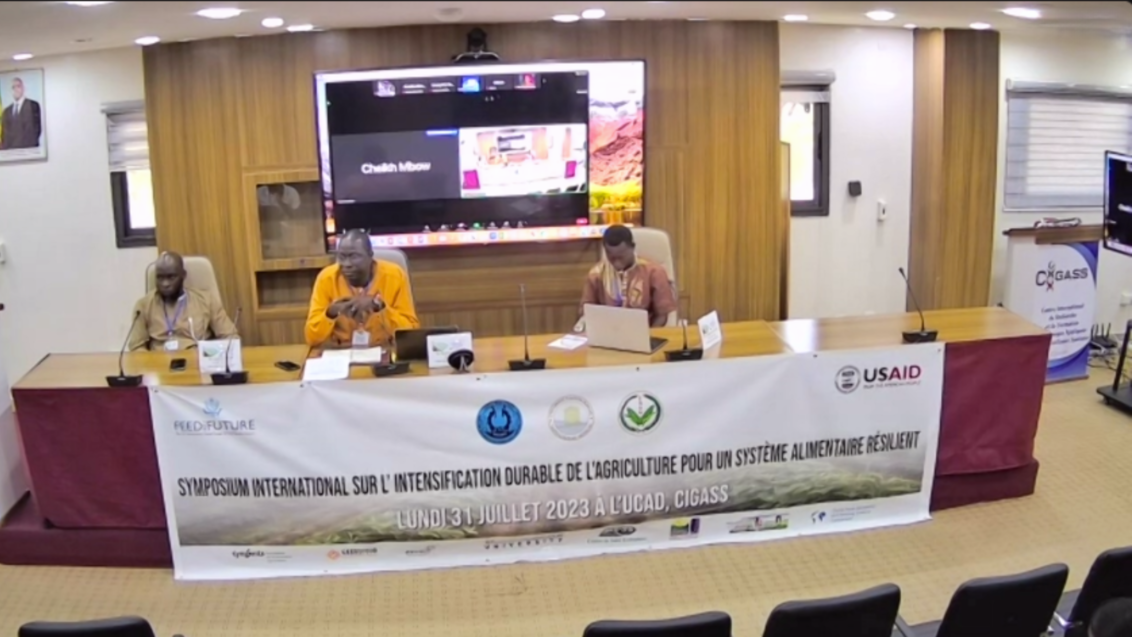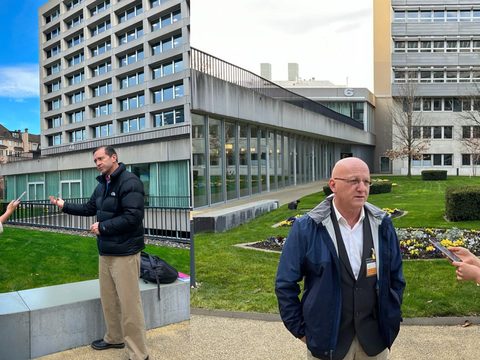Dakar discussions shed light on sustainable agriculture for Senegal

What are the solutions and the innovations that can bring forth a sustainable intensification and resilience of agriculture? This question was at the heart of discussions between different actors and leaders in the Senegalese agricultural sector at a recent symposium in Dakar. Our Foundation (SFSA), represented by Senegal Country Director Alassane Aw, participated online.
Agri-Service Centers, strategies for the introduction of new varieties, digital solutions, innovations, are all key aspects of the Foundation’s method for sustainable initiatives. This symposium was an opportunity for SFSA to share its operational and partnership approach, notably in projects such as Feed the Future, Agricultural Development and Rural Entrepreneurship Support Program, Project Rice Agripreneurship and the Partnership for Seed Technology Transfer in Africa (PASTTA).
This symposium is a great opportunity to exchange views with universities and research institutes, producer organizations, development partners and NGOs. This symposium allowed us to comprehend in greater-depth research conclusions and pinpoint emerging needs for sustainable intensification in the context of climate change.
Alassane Aw
Alassane outlined the solutions and innovations that have been currently adopted to increase the incomes of small-scale producers and strengthen the resilience of communities in Senegal.
Organized by the students of several universities and with the support of SFSA, this hybrid symposium (virtual and in-person) welcomed around 60 participants from research institutes, support and financial institutions, producers and NGOs. This conference was a platform for discussions and for the sharing of technical as well as innovative knowledge for a sustainable and resilient agriculture.
Despite the agriculture sector’s weight in the Senegalese economy and its abundance of resources (e.g. water and fertile land), this sector is not able to meet the increasing needs of the population, especially in a context impacted by climate change.
Our agriculture is confronted by numerous challenges which to varying degrees impact negatively on agricultural productions and food security, commented Dr Farokh Niasse, Director in Agronomic Sciences, Aquaculture and Food Technology (S2ATA program) at Gaston Berger University of Saint-Louis.
These concerns range from low levels of agricultural intensification, characterized by low levels of mechanization, an inability to regulate water and soil fertility, non-compliance with good farming practices and the use of low-yielding seed varieties that are highly susceptible to pest and disease.
The choice of theme for this conference translates the shifting mindsets of universities and partners towards promoting the intensification of agriculture, sustainably. We need to encourage cooperation to implement solutions for the sustainable intensification of systems of production, achieving food sovereignty, whilst strengthening the resilience of communities.
Dr. Farokh Niasse
At the end of the meeting, participants recommended that collaboration be strengthened between universities in Senegal and in the United States, alongside other actors in the agricultural world. These links should be sustained and enforced in order to take into consideration all the dimensions linked to the sustainable intensification of agriculture for a resilient food system.

